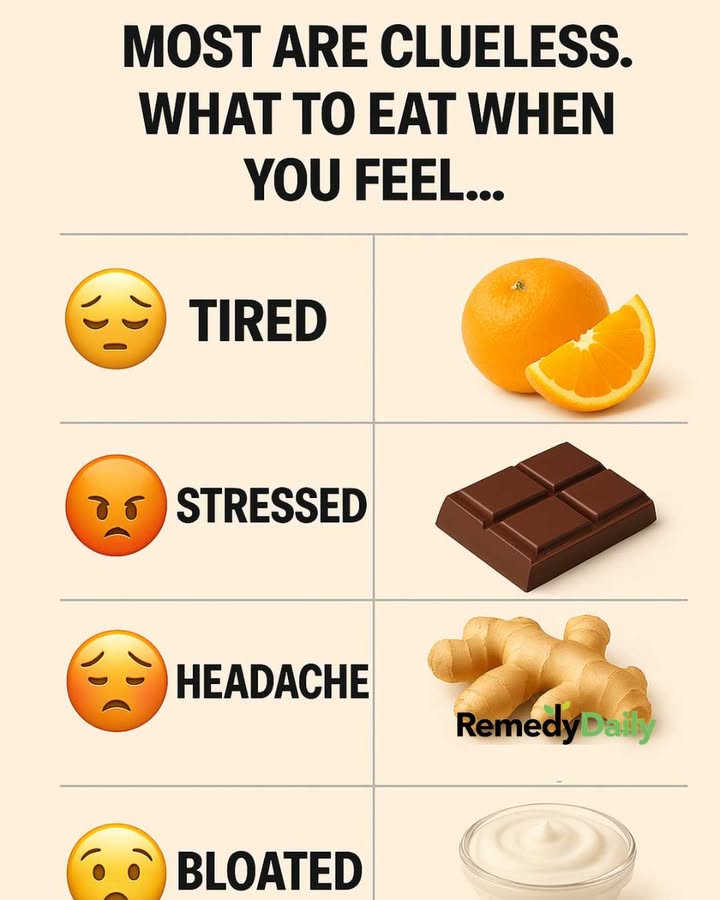Most are clueless. What to eat when you feel
Morgan Reed
Contributing Writer
Emotional eating is a phenomenon where people use food to cope with their feelings instead of satisfying hunger. This behavior is often triggered by various emotions such as stress, sadness, happiness, or boredom. Understanding the connection between emotions and eating is crucial because it helps individuals recognize unhealthy eating patterns and make more mindful food choices. Emotional eating can lead to overeating, weight gain, and a cycle of guilt and shame. By identifying the emotional triggers that lead to eating, individuals can develop healthier coping mechanisms and improve their overall well-being.
The Science Behind Emotional Eating
Emotional eating is deeply rooted in the brain’s reward system. When we eat, our brain releases dopamine, a neurotransmitter associated with pleasure and reward. This release can temporarily alleviate negative emotions, creating a cycle where individuals turn to food for comfort. Stress can also increase levels of the hormone cortisol, which can trigger cravings for high-fat, high-sugar foods. Understanding the science behind emotional eating can help individuals recognize that these cravings are often not about hunger but rather a response to emotional distress.
What To Eat When You Feel…
1. Stressed: ✔ Dark Chocolate
Why it works: Dark chocolate (especially 70% cocoa or higher) contains flavonoids that improve blood flow to the brain and lower cortisol (your stress hormone). It also triggers the release of endorphins and serotonin—natural mood boosters.
2. Tired: ✔ Nuts or Greek Yogurt
Why it works: Nuts, like almonds and walnuts, are rich in magnesium and protein, which help sustain energy levels. Greek yogurt is packed with protein and probiotics, which support gut health—your gut and brain are deeply connected.
3. Bloated: ✔ Cucumber or Ginger Tea
Why it works: Cucumber has a high water content and natural anti-inflammatory properties that help flush out excess water and sodium. Ginger tea calms the digestive tract, reduces gas, and supports smoother digestion.
4. Anxious: ✔ Oatmeal or Banana
Why it works: Oatmeal is a complex carb that promotes serotonin production, the neurotransmitter responsible for feeling calm and stable. Bananas are rich in vitamin B6 and potassium, both of which support nerve function and stress reduction.
5. Angry: ✔ Chamomile Tea or Blueberries
Why it works: Chamomile has natural sedative effects that help ease tension and anger. Blueberries are rich in antioxidants that fight oxidative stress and help regulate mood by supporting brain function.
6. Sad: ✔ Salmon or Avocado
Why it works: Salmon is loaded with omega-3 fatty acids that play a key role in regulating mood and combating depression. Avocados provide healthy fats and B vitamins, both essential for neurotransmitter production.
7. Lonely: ✔ Turkey or Sweet Potato
Why it works: Turkey contains tryptophan, an amino acid that boosts serotonin levels. Sweet potatoes are comforting and rich in fiber and slow-burning carbs that stabilize blood sugar and mood.
8. Overwhelmed: ✔ Leafy Greens or Oranges
Why it works: Leafy greens like spinach are packed with magnesium, which relaxes the nervous system. Oranges are high in vitamin C, which reduces cortisol levels and offers a quick energy refresh.
9. Craving Comfort: ✔ Warm Soup or Mashed Cauliflower
Why it works: Warm, soft foods trigger feelings of safety and comfort. Soups hydrate and soothe, while mashed cauliflower is a low-carb alternative that’s both creamy and satisfying.
10. Distracted or Unfocused: ✔ Eggs or Blueberries
Why it works: Eggs contain choline, which supports brain function and memory. Blueberries, again, are cognitive powerhouses—rich in flavonoids that enhance focus and mental clarity.
11. Sluggish: ✔ Apples or Green Tea
Why it works: Apples offer natural sugars and fiber for a slow energy release. Green tea contains L-theanine and caffeine—a combo that boosts alertness without the crash of coffee.
12. Irritable: ✔ Pumpkin Seeds or Carrots
Why it works: Pumpkin seeds are high in magnesium and zinc—two minerals linked to mood stability. Crunching on carrots releases tension in the jaw and provides a satisfying, healthy distraction.
13. Embarrassed: ✔ Peppermint Tea or Watermelon
Why it works: Peppermint tea soothes both the digestive system and racing thoughts. Watermelon hydrates and cools the body, calming the physical symptoms of embarrassment like blushing or overheating.
14. Heartbroken: ✔ Dark Chocolate or Cherries
Why it works: Again, dark chocolate for the serotonin boost. Cherries contain melatonin and antioxidants that promote better sleep and lower inflammation linked to emotional pain.
15. Nervous: ✔ Peanut Butter or Whole Grain Toast
Why it works: The healthy fats in peanut butter stabilize blood sugar and calm the nerves. Whole grain toast adds complex carbs, which fuel your brain and balance mood.
16. Restless: ✔ Kiwi or Tart Cherry Juice
Why it works: Kiwi has natural serotonin-boosting properties and is also rich in vitamin C. Tart cherry juice contains melatonin, helping to ease you into a more restful state.
17. Insecure: ✔ Quinoa or Beets
